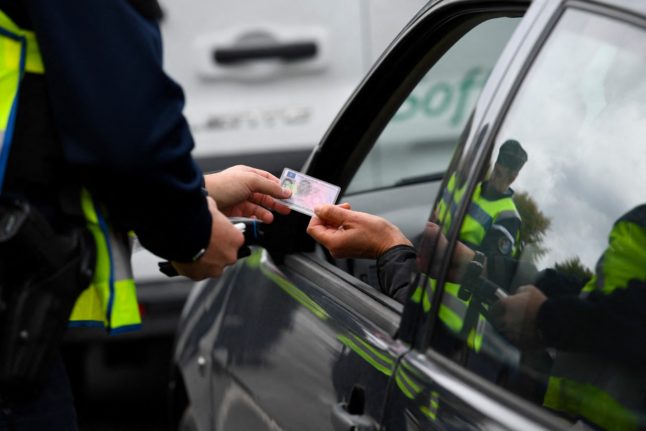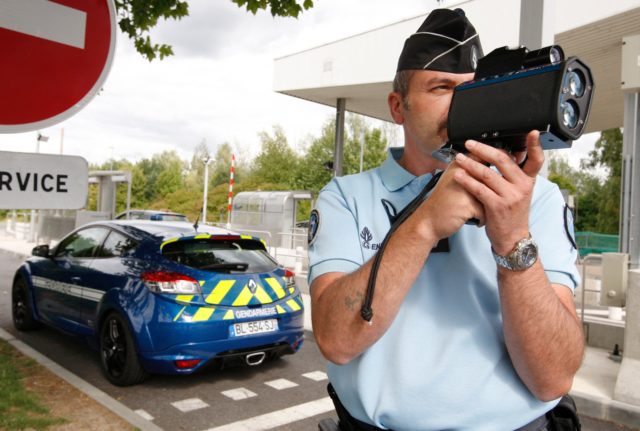When will this go into effect?
The changes will start on April 1st – at that point, only electric scooters will need to have the physical green insurance sticker displayed.
READ MORE: France to end rule on insurance ‘green cards’
How will police verify my insurance status?
They will use a new digital system. This allows them to check a driver’s insurance using their licence plate and by verifying information in the file of insured vehicles (FAV) – which has been accessible to law enforcement since 2019.
Insurance companies are required to update the register every 72 hours.
This means that drivers will no longer have any insurance paperwork to present when pulled over by police, as it will be up to the officer to consult their file using the online system.
How do you know if your car is registered on the online file of insured vehicles?
Car owners can check that their vehicles are listed on the file, which is maintained by the Association pour la gestion des informations sur le risque en assurance, by connecting to the ‘Fichier des véhicules assurés’ website, www.fva-assurance.fr, clicking the ‘Consulter le FVA’ tab and following the instructions.
What if you are not on the list?
If you change your insurance plan, beware that it can take 72 hours for the FAV to update. This means that during those first few days, you will need to present your Insured Vehicle Memo (Mémo Véhicule Assuré) to the police officer.
This is a document that is provided by an insurer when taking out a new contract.
Insurers will be sending out this document to motorists in the coming weeks, to aid with the transition period after the end of the carte verte in April. It will be a small card that you can carry with you.
Some providers may allow you to download or access it online too.
What do you do if you were classified as ‘uninsured’ during a police stop?
If your vehicle is classified as uninsured after being pulled over – whether correctly or incorrectly – you will have 45 days to appeal, either by post or online, to the National Agency for the Automated Processing of Offenses (ANTAI).
What if I am involved in an accident?
Technically, you still will not need the carte verte, as police would be able to access your information on the online file.
That being said, you may want to carry your Insured Vehicle Memo in the off-chance you are not listed in the insured vehicles file. It also contains the necessary information you would need to complete a report after an accident.
What if I am driving outside of France?
If you are planning to drive in the EU/EEA, you do not need to worry. Police officers in these countries will also be able to consult your insurance information in the online file by checking your licence plate, according to the insurance section for Société Générale.
However, if you are going outside of the EU – to a country like Albania or Morocco, it would be wise to consult local rules and, if needed, ask for the ‘International Motor Insurance Card’ (Carte internationale d’assurance automobile) from your insurer before your departure.



 Please whitelist us to continue reading.
Please whitelist us to continue reading.
Member comments